FAQs
What is the Montessori philosophy and how can my child benefit from this philosophy?
Montessori educators believe that children learn best within a warm, social environment that supports and encourages children to develop their full potential. At Little Miners Montessori, your child will benefit from core Montessori values, such as:
• The “whole child approach”– The Montessori method encourages not only cognitive learning, social skills, and physical coordination, but also strongly focuses on emotional growth, independent learning and the development of self-esteem.
• The “prepared environment” – A Montessori classroom is specifically designed to create self-directed learning. The materials, social climate and the role of the teacher encourage children’s natural curiosity and initiative in a safe, positive climate.
• The Montessori materials – At Little Miners Montessori School, each classroom contains numerous Montessori materials. These materials are created to be multi-sensory, sequential and self-correcting so your child gradually masters various skills and the understanding of abstract concepts.
• The teacher – The Montessori teacher functions as a resource person, role model, demonstrator, record-keeper and meticulous observer of children’s behavior and growth.
Why should I choose a Montessori education for my child?
Dr. Maria Montessori found that the ages from birth through six years is the most critical time in children’s learning and development as they are the most receptive, curious and excited about exploring the world around them. At LMM, our classrooms nurture and stimulate their natural curiosity and excitement by offering children a variety of materials to manipulate and use.
What does Little Miners Montessori School have to offer that my child can’t get at a traditional preschool?
You will see the difference the minute you walk into our beautiful school! The materials used to teach reading, writing, arithmetic, cultural studies, science and music are all unique to a Montessori classroom. Children are also free to choose activities of interest while teachers observe children and guide them through individual and small group lessons.
Are Montessori children successful later in life?
Research shows that the best predictor of future success is a sense of self-esteem. Montessori programs help children develop good self-images and the confidence to face challenges and change with optimism because they are based on self-directed, non-competitive activities. Montessori – taught children are unusually adaptable and have learned to work independently and in groups. Since they’ve been encouraged to make decisions from an early age, Montessori children are problem-solvers who can make choices and manage their time effectively. They have also been encouraged to exchange ideas, to discuss their work freely with others, and their strong communication skills ease their way into new settings.
How is discipline maintained in Montessori schools?
At LMM, each student is expected to be respectful of the teachers and his/her peers. If a student is disrespectful or cannot stay with his/her work, the student will be redirected. If redirection does not help, the student is asked to sit and think about his/her actions. We believe children should not be subjected to ridicule and embarrassment. If the student is repeatedly or unusually disrespectful and disruptive, the student’s parents will be notified. It is important that the school and the parents work together for the benefit of the child.
What is the Montessori curriculum?
Montessori children work in two general areas: character education and academic education. At LMM, we strongly focus on children learning to take care of themselves, their environment and each other. Cooking, cleaning, building, moving gracefully, speaking politely, being considerate and helpful are some examples of character education. Academic education is highly regarded, as well. Parents are usually surprised to find that our students are reading, writing and completing high-level arithmetic at such an early age. The classrooms are arranged according to subject area and children are always free to move around the room instead of staying at desks. All kinds of intelligence and styles of learning are nurtured: musical, kinesthetic, spatial, interpersonal, intrapersonal, intuitive, linguistic and logical. Assessment is by portfolio and the teacher’s observations and record-keeping.
Why do Montessori schools have mixed-age classrooms?
There is constant interaction, problem solving, child to child teaching, and socialization. Children are challenged according to their ability and never bored with the multitude of wide-ranging activities in the classroom.
• 18 months to 3 years (Toddler Program)
• 3 to 6 years (Early Childhood Program / 5 to 6 years (Kindergarten Program)
• 6 to 9 years (Lower Elementary Program)
What is the teacher/student ratio?
The maximum number of students to teacher is 11 to 1 but often the ratio is less (1:8) when children attend the art and music program throughout the school year.
What is the role of the Montessori teacher?
Certified Montessori teachers, also called directresses, serve to guide the children through careful observations. There are no papers turned back with red marks and corrections. Instead the child’s effort and work is respected as it is. Teachers plan individual projects that are developmentally appropriate for each child. If a child masters a concept or new skill, the teacher guides the child forward with a more challenging activity that the child finds interesting.
Do I have my child bring their own snack?
LMM provides a healthy snack each morning and afternoon session. We enjoy healthy snacks such as fruit and crackers and often have “special” snacks to enrich our studies of different cultures.
Does Little Miners provide a lunch for my child?
LMM does not provide lunch. We ask that you bring a HEALTHY packed lunch for your child. Please provide an ice pack or thermos if your child’s lunch requires cold or heat. LMM cannot put lunches in the refrigerator or warm them up.
What age can my child start school at Little Miners Montessori?
18 months
Do I bring/provide a snack?
In the Toddler program children bring their own snack. The Toddler children are encouraged to bring a lunch box to store their snack in and provide a cold pack if needed.
In the Early Childhood & Lower Elementary programs LMM provides a healthy daily snack twice a day.
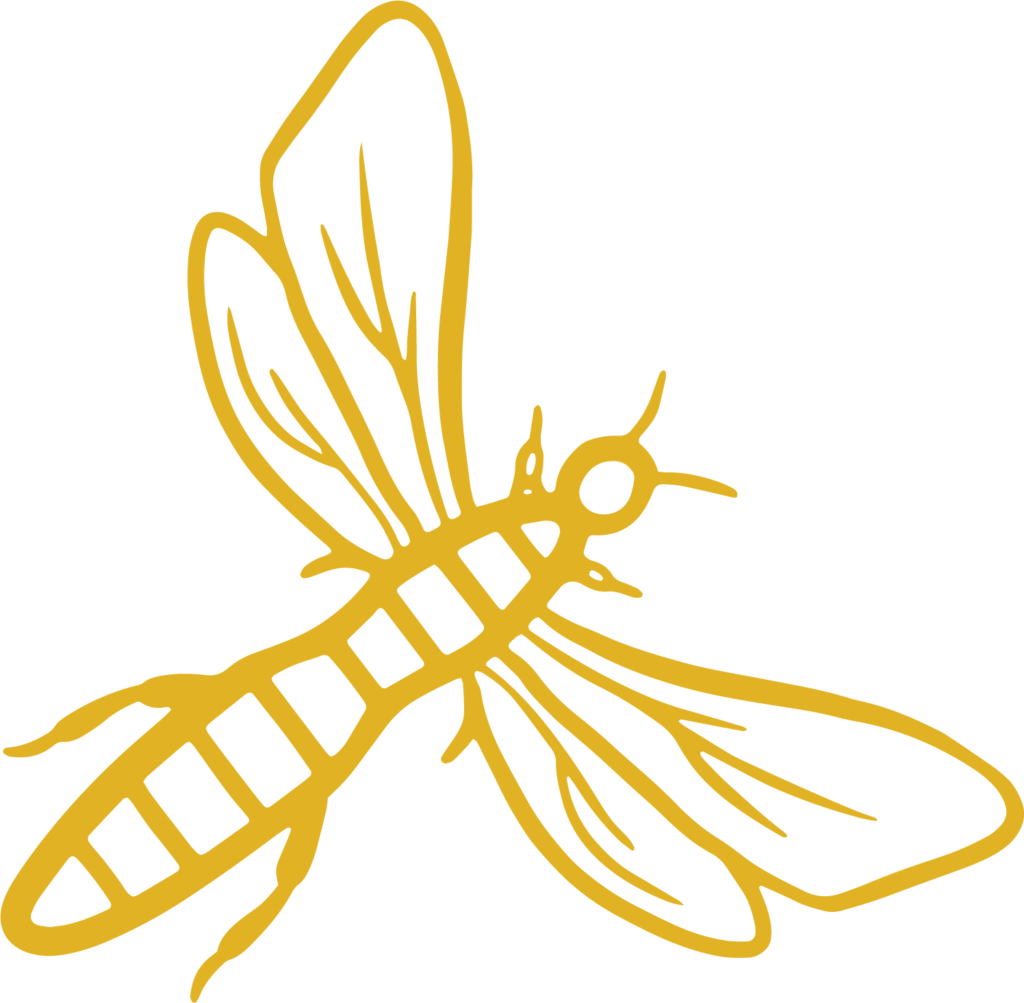
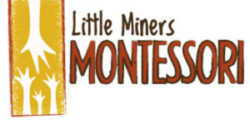
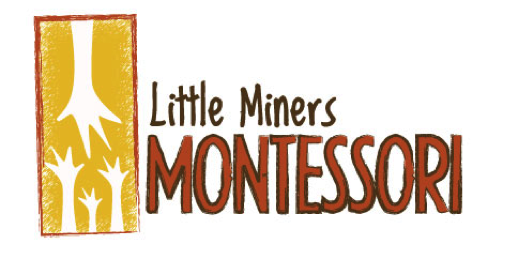
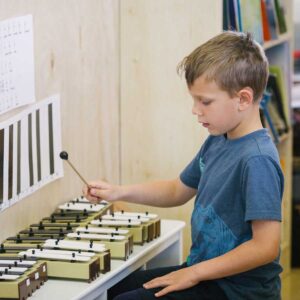
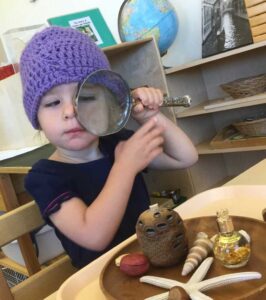
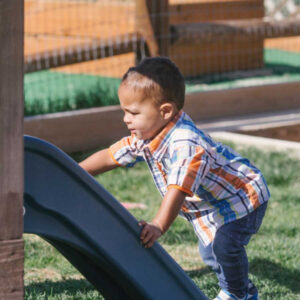





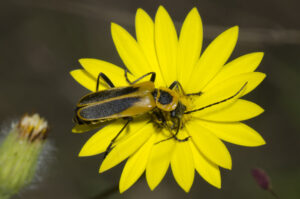

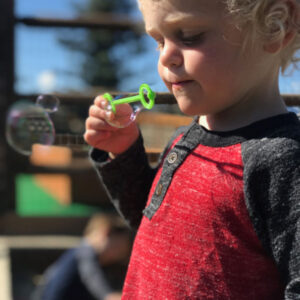
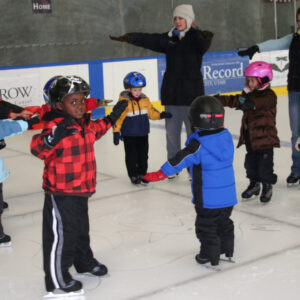

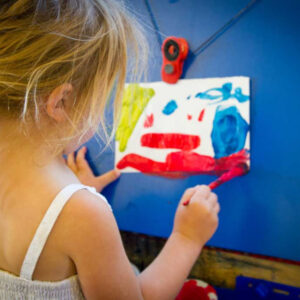
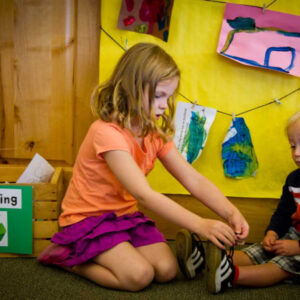
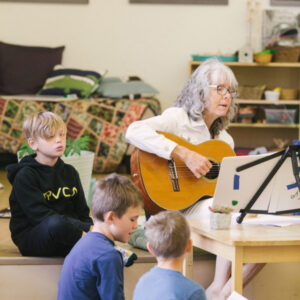
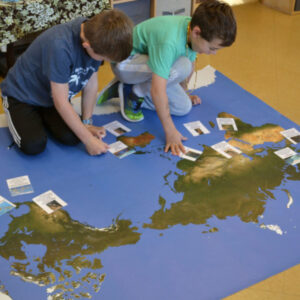
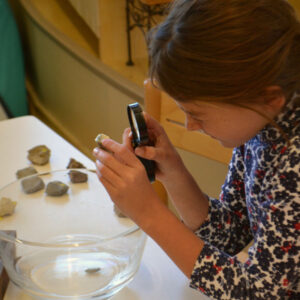
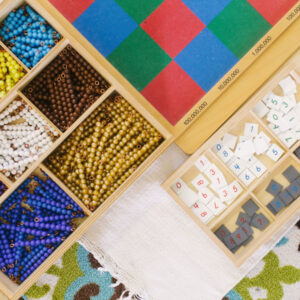
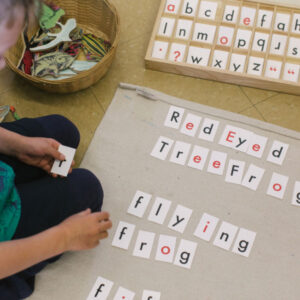

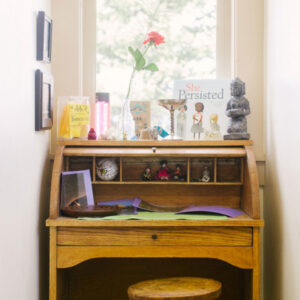
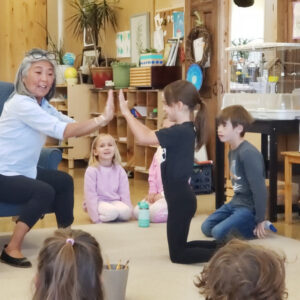
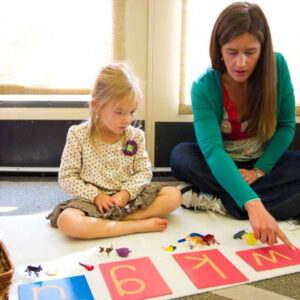 This is the culminating year of the Early-Childhood cycle which provides an extraordinary opportunity for the 5 and 6 year-olds to develop their leadership skills. Kindergartners act as positive peer models for their younger classmates. They enjoy their positions of responsibility that further strengthen their own capabilities and self-esteem. Everything that children have learned in the previous years as a Montessori student, come together in the Kindergarten year. These children are ready to meet new challenges with confidence and determination.
This is the culminating year of the Early-Childhood cycle which provides an extraordinary opportunity for the 5 and 6 year-olds to develop their leadership skills. Kindergartners act as positive peer models for their younger classmates. They enjoy their positions of responsibility that further strengthen their own capabilities and self-esteem. Everything that children have learned in the previous years as a Montessori student, come together in the Kindergarten year. These children are ready to meet new challenges with confidence and determination.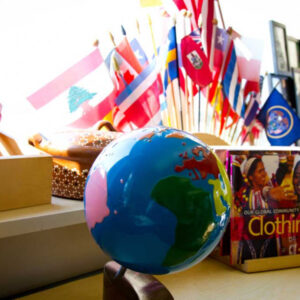 Geography in the Montessori classroom is a true celebration of the world’s diversity as well as it’s common threads. Children gain a deeper global perspective as they are introduced to land forms, continents, and study of the earth’s formation. The Geography curriculum begins with the two hemispheres of the Earth and becomes more detailed as children learn about the continents and the countries.
Geography in the Montessori classroom is a true celebration of the world’s diversity as well as it’s common threads. Children gain a deeper global perspective as they are introduced to land forms, continents, and study of the earth’s formation. The Geography curriculum begins with the two hemispheres of the Earth and becomes more detailed as children learn about the continents and the countries.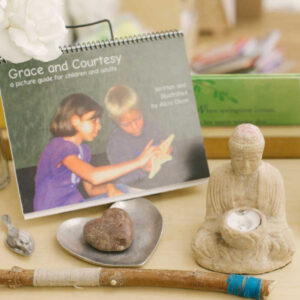 Perhaps the most critical life skill of all for children to master is the ability to work and play with others in a peaceful and caring way. Treating others with dignity and respect are cornerstones of the Montessori philosophy and are taught through Grace and Courtesy exercises.
Perhaps the most critical life skill of all for children to master is the ability to work and play with others in a peaceful and caring way. Treating others with dignity and respect are cornerstones of the Montessori philosophy and are taught through Grace and Courtesy exercises.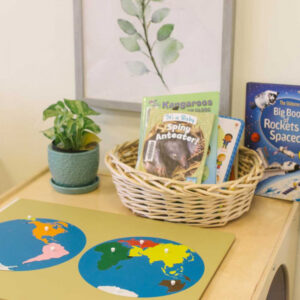 The Cultural area of the Montessori classroom can and should be as broad and varied as the world in which we live. Cultural Studies extend into the Practical Life, Sensorial, Math, and Language areas of the classroom and allow for further exploration with interesting and unique activities. The Cultural Area includes music, art, geography, history, ecology, geology, botany, zoology, and the physical sciences. These “key experiences” provide the child with a sense of wonder through sensorial experiences, literature, music, activities, and artifacts from all around the world. The Montessori classroom encourages exploration and curiosity to define a sense of self and the spirit of the people of the world.
The Cultural area of the Montessori classroom can and should be as broad and varied as the world in which we live. Cultural Studies extend into the Practical Life, Sensorial, Math, and Language areas of the classroom and allow for further exploration with interesting and unique activities. The Cultural Area includes music, art, geography, history, ecology, geology, botany, zoology, and the physical sciences. These “key experiences” provide the child with a sense of wonder through sensorial experiences, literature, music, activities, and artifacts from all around the world. The Montessori classroom encourages exploration and curiosity to define a sense of self and the spirit of the people of the world.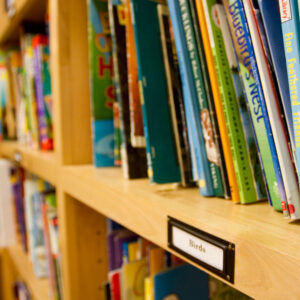 Maria Montessori observed that the potential exists for children to develop the higher language skills of reading and writing with the same ease with which they acquire oral speech. This “explosion” into literacy occurs naturally in the primary years if children are presented with the tools and experiences needed to nourish this organic inclination to learn.
Maria Montessori observed that the potential exists for children to develop the higher language skills of reading and writing with the same ease with which they acquire oral speech. This “explosion” into literacy occurs naturally in the primary years if children are presented with the tools and experiences needed to nourish this organic inclination to learn.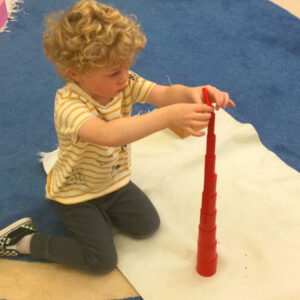 The Sensorial materials are critical for academics in the Montessori classroom. These activities begin with the youngest children in the class. Through various extensions and games they remain interesting to even the oldest children. The Sensorial materials build on the Practical Life activities and prepare the child for math and language through lessons in observation and problem solving.
The Sensorial materials are critical for academics in the Montessori classroom. These activities begin with the youngest children in the class. Through various extensions and games they remain interesting to even the oldest children. The Sensorial materials build on the Practical Life activities and prepare the child for math and language through lessons in observation and problem solving.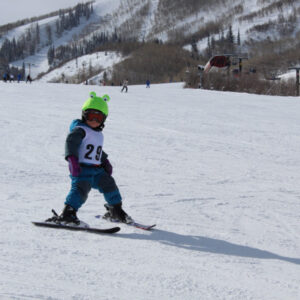 Little Miners offers Yoga, Ski, Ice Skating, Stretch & Grow, as well as plenty of outdoor time.
Little Miners offers Yoga, Ski, Ice Skating, Stretch & Grow, as well as plenty of outdoor time. Info Coming Soon.
Info Coming Soon.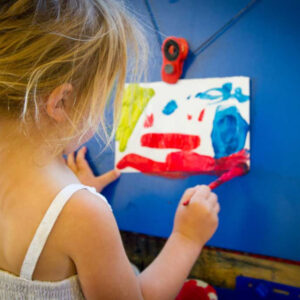 Art and music represent ways to communicate, ideas, imagination, culture, and humanity. Just as a child requires skills to write or dance or swim, she needs to also be given the tools and techniques to create her own masterpieces.
Art and music represent ways to communicate, ideas, imagination, culture, and humanity. Just as a child requires skills to write or dance or swim, she needs to also be given the tools and techniques to create her own masterpieces.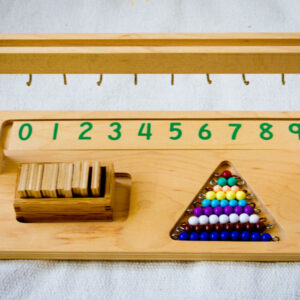 A carefully sequenced progression of mathematical activities from concrete to more abstract materials, simple to increasingly complex operations and lastly, tools for memorization of facts ensure a child’s whole brain development. The process and problem solving are first and foremost. Movement, active participation, and opportunities to problem solve, stimulate all four lobes of the brain, and nourish the child’s interest. Dr. Montessori created math materials that spark the imagination of the eagerly curious child.
A carefully sequenced progression of mathematical activities from concrete to more abstract materials, simple to increasingly complex operations and lastly, tools for memorization of facts ensure a child’s whole brain development. The process and problem solving are first and foremost. Movement, active participation, and opportunities to problem solve, stimulate all four lobes of the brain, and nourish the child’s interest. Dr. Montessori created math materials that spark the imagination of the eagerly curious child.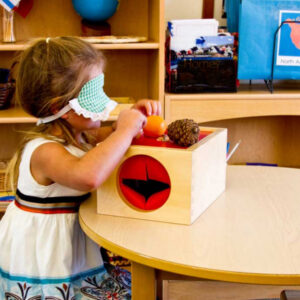 Sensorial activities assist Toddlers in the great task of organizing, integrating and learning about their sensory input. The sensorial materials are designed to simplify learning and awareness of the environment by isolating difficulty; isolating the senses; encouraging mastery through repetition; possessing self-correction within the material; and presenting an attractive appearance to the child.
Sensorial activities assist Toddlers in the great task of organizing, integrating and learning about their sensory input. The sensorial materials are designed to simplify learning and awareness of the environment by isolating difficulty; isolating the senses; encouraging mastery through repetition; possessing self-correction within the material; and presenting an attractive appearance to the child.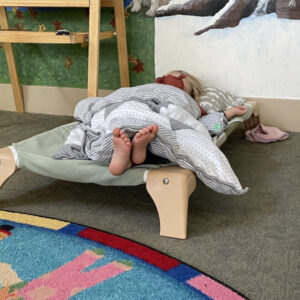 For those children enrolled in the full day schedule nap time will begin around 1:00PM following lunch, recess, and a pre-nap story time. LMM will provide a separate sleeping cot or a pop-out tent for each child.
For those children enrolled in the full day schedule nap time will begin around 1:00PM following lunch, recess, and a pre-nap story time. LMM will provide a separate sleeping cot or a pop-out tent for each child.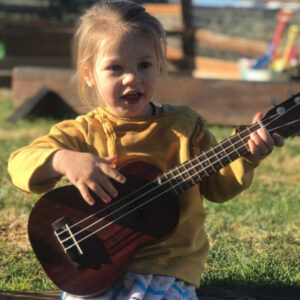 Music & Movement
Music & Movement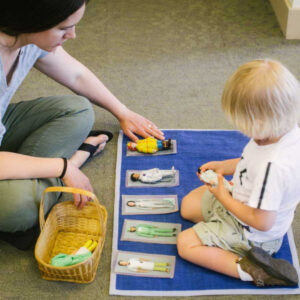 Around the age of two, children’s speech development experiences an explosion of words, soon followed by sentences. The Language materials in the Toddler classroom encourage the refinement and enrichment of language as the first steps on the road to writing and finally reading. Early Language materials and oral exercises like storytelling and reading aloud support the toddler’s need to be immersed in language. Activities include books, puzzles, naming objects like fruits, vegetables and animals, and beginning sound games.
Around the age of two, children’s speech development experiences an explosion of words, soon followed by sentences. The Language materials in the Toddler classroom encourage the refinement and enrichment of language as the first steps on the road to writing and finally reading. Early Language materials and oral exercises like storytelling and reading aloud support the toddler’s need to be immersed in language. Activities include books, puzzles, naming objects like fruits, vegetables and animals, and beginning sound games.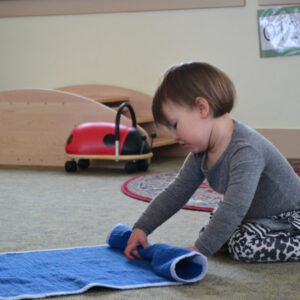 These are the first exercises introduced to the children. They create the foundation upon which all other work in the classroom depends. Practical Life exercises include care of self and the environment, as well as the development of large and fine motor control. These practical experiences in everyday activities are the cornerstone of the Montessori Method.
These are the first exercises introduced to the children. They create the foundation upon which all other work in the classroom depends. Practical Life exercises include care of self and the environment, as well as the development of large and fine motor control. These practical experiences in everyday activities are the cornerstone of the Montessori Method.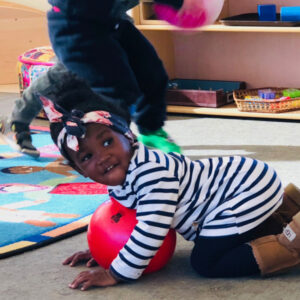 Little Miners has recently partnered our Toddler Program with Stretch-n-Grow of Utah! On Tuesdays and Wednesdays, our toddlers enjoy a 30-minute session of exercising with this fun company. Here is an excerpt from their website about Stretch-n-Grow:
Little Miners has recently partnered our Toddler Program with Stretch-n-Grow of Utah! On Tuesdays and Wednesdays, our toddlers enjoy a 30-minute session of exercising with this fun company. Here is an excerpt from their website about Stretch-n-Grow: